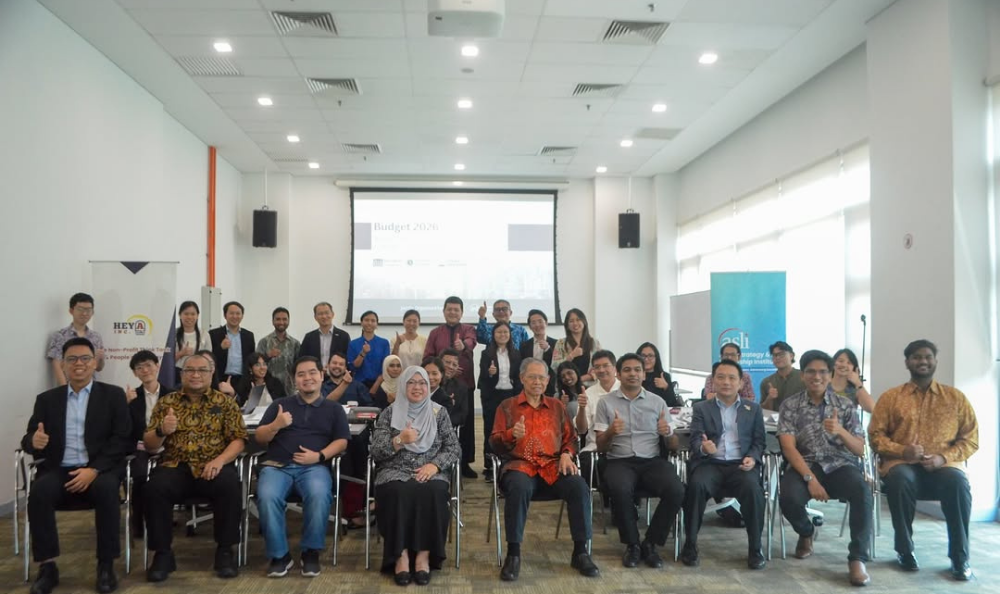
Malaysian Pride Soars With The Ringgit
By Wong Chun Wai
Bernama
KUALA LUMPUR, Sept 29: It has been a while since Malaysians began to feel some pride. Certainly, the strengthening of the ringgit against the dollar has made a big impact on national confidence.
The Malaysian ringgit, which continues its upward trend, has surged to its highest level against the greenback since March 2022.
Not only is it the best-performing currency in the region, but it also became the world’s top-performing currency this month as it rode on the US Federal Reserve’s large interest rate cut.
The comeback story of Malaysia, underpinned by an economy that has expanded at its fastest rate in the past 19 months, has attracted global attention.
There is no doubt that the country’s political stability under Prime Minister Datuk Seri Anwar Ibrahim is one of the main reasons for Malaysia’s economic success compared to Thailand and Indonesia, which fell by the wayside politically.
The ringgit climbed to a 30-month high recently of 4.1815 against the US dollar recently. It ended last week, closing on Friday at 4.1230/1280.
Now, the speculations are that the ringgit could go up to RM4 against the dollar as BMI, a unit of the Fitch group, revised its year-end forecast for the ringgit from 4.55 against the US dollar to 4.0, reflecting the local currency’s robust performance in the third quarter of 2024.
Looking beyond the six-month period, BMI even predicted the ringgit to strengthen by nine per cent next year, reaching 3.55 against the dollar by the end of 2025.
It sounds very good, but as we all know, the ringgit depends very much on external factors, especially on the US Fed interest rate trajectory and mainland China’s growth, which is our biggest trading partner.
Over the medium view, there will always be some profit taking, which would affect our rate, but it is healthy and natural.
At one time last year, there was fear that the ringgit could hit as low as RM5 against the dollar, but now the ringgit has appreciated more than 12 per cent against the dollar.
Last week, the South China Morning Post (SCMP) reported that “for Malaysians, the exchange rate of the ringgit against the US dollar, as well as regional currencies like the Singapore dollar and the Thai baht, serves as an indicator for how well the economy is doing and reflects confidence in the government.”
Whatever the criticisms and misgivings that have been levelled against Anwar Ibrahim for his purported delays in reforms and even making compromises with the conservative groups who didn’t vote for him in the last general election, he is on the right track for sure.
Malaysia is politically stable, and his Madani Unity government isn’t going to give way soon. His opponents must wait for another three years to challenge him despite the many political noises generated, which Malaysians have grown used to.
The SCMP quoted Mohd Afzanizam Abdul Rashid, the chief economist at Bank Muamalat Malaysia, saying, “The stability has facilitated more effective policymaking and implementation, boosting confidence in the ringgit.
“This has created better reviews by the credit rating agencies and global investment banks.”
Reuters reported a news article under the heading “Malaysia shines as foreign investors return, peers stumble.”
In its Aug 22 article, the news agency said, “Malaysia is fast becoming a haven in Southeast Asia, and foreign investors are returning to a long-overlooked market as a confluence of improving growth, stable government and rising currency sets it apart among peers grappling with political flux.”
“Foreigners have steadily poured more money into Malaysian debt and stocks this year. In July, as political troubles brewed in Thailand and Indonesia, they pumped US$1.75 billion into Malaysian debt markets the highest in a year.
“The stock market, Bursa Malaysia, is gunning for its strongest yearly performance in well over a decade.”
At home, while the cost of living remains a big concern among many Malaysians, the inflation rate has decreased to 1.90 per cent in August from 2 per cent in July 2024.
Trading Economics reported that the inflation rate is expected to be 1.50 per cent by the end of this year, according to its global macro models and expectations from analysts.
More importantly, the number of jobs in the first quarter of this year increased by 1.5 per cent to 8.94 million the highest recorded since 2018, according to the Employment Statistics, First Quarter 2024.
Chief Statistician Datuk Ser Dr Mohd Uzir Mahidin was quoted by Bernama as saying that 8.81 million jobs were recorded in the first quarter of 2023.
HR Asia reported that Malaysia’s job market remains robust throughout 2024, with “companies continuing to hire in line with ongoing economic expansion.”
Malaysians now look forward to the annual economic report as well as the Budget to be presented in Parliament next month to have a clearer and more detailed idea of what’s in store for us.




